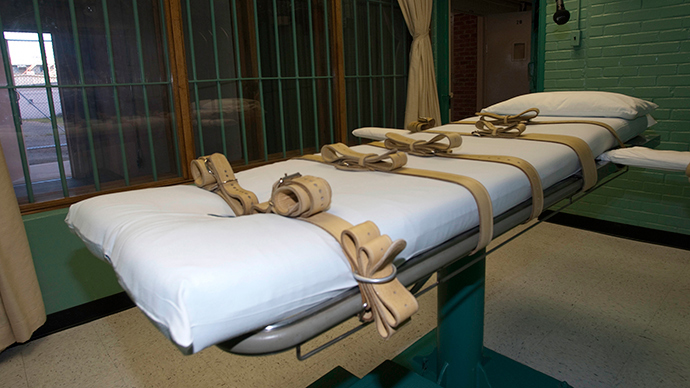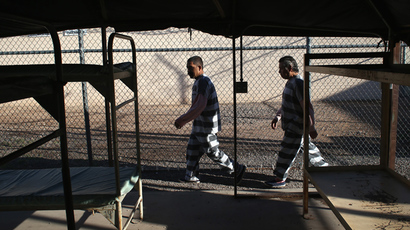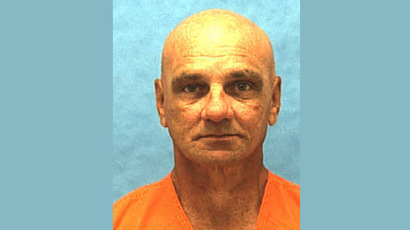45% of Brits want to bring back death penalty – 50 yrs after last execution

Murderers should face the death penalty in the UK, say 45 percent of Brits in a poll taken to coincide with the 50th anniversary of the country’s last legal executions. Support for reintroduction was highest among the over 60s and UKIP voters.
The YouGov poll of almost 2,000 people showed a significant number would like to see the return of capital punishment. While support for the practice is high, the figures show it fell by 6 percent on 2010 figures, down from 51 percent in a similar poll.
Figures also show strong opposition to the death penalty, with 52 percent polling against. Overall, 39 percent were against the death penalty, while 17 percent were undecided. The group most resistant to reintroduction were 18 to 24 year olds, while older respondents and those from a lower social class tended to be in favor.
When asked if Britain’s abolition of the death penalty was a good or a bad thing, there was an equal split of 42 percent each, while 16 percent did not know. Meanwhile, 57 percent of 18 to 24 year olds thought abolition was a good thing.
Asked if the execution of murderers deterred others from committing murder, 45 percent agreed, while 41 percent disagreed and the remaining 13 percent answering that they did not know. Life imprisonment without possibility of parole was thought to be a harsher punishment than death by 42 percent against 40 percent.
The poll also asked whether respondents approved of particular methods of execution, with 51 percent either strongly approved or tended to approve of lethal injection, 25 percent of the electric chair, 23 percent of hanging, 19 percent by gas chamber, 17 percent by firing squad, and 9 percent by beheading.
Meanwhile, those self-identifying as UKIP voters who took part in the poll were found to shows higher levels of support for the death penalty than those with other political affiliations. Although it is not official party policy, UKIP deputy leader Paul Nuttall, UKIP MEP for northwest England, says he wants the death penalty introduced for child murderers, serial killers and those who murder police officers.
The UK Foreign Office stresses in the present government’s global Strategy for Abolition of the Death Penalty 2010- 2015: “It is the longstanding policy of the UK to oppose the death penalty in all circumstances as a matter of principle.”
All EU member states have either abolished capital punishment or instituted a moratorium on executions. This determination to eradicate the death penalty was reflected in Protocol 6 to the European Convention on Human Rights.
The last two convicted murderers to be executed in Britain were 24-year-old Gwynne Evans and 21-year-old Peter Allen on 13 August 1964. The 1957 Homicide Act removed the automatic death penalty for all murderers. Capital punishment was abolished for five years in the 1965 Murder Act then permanently in 1969.
The abolition debate continues in the US, where a number of botched executions and late exonerations have cast doubt over the practice.














